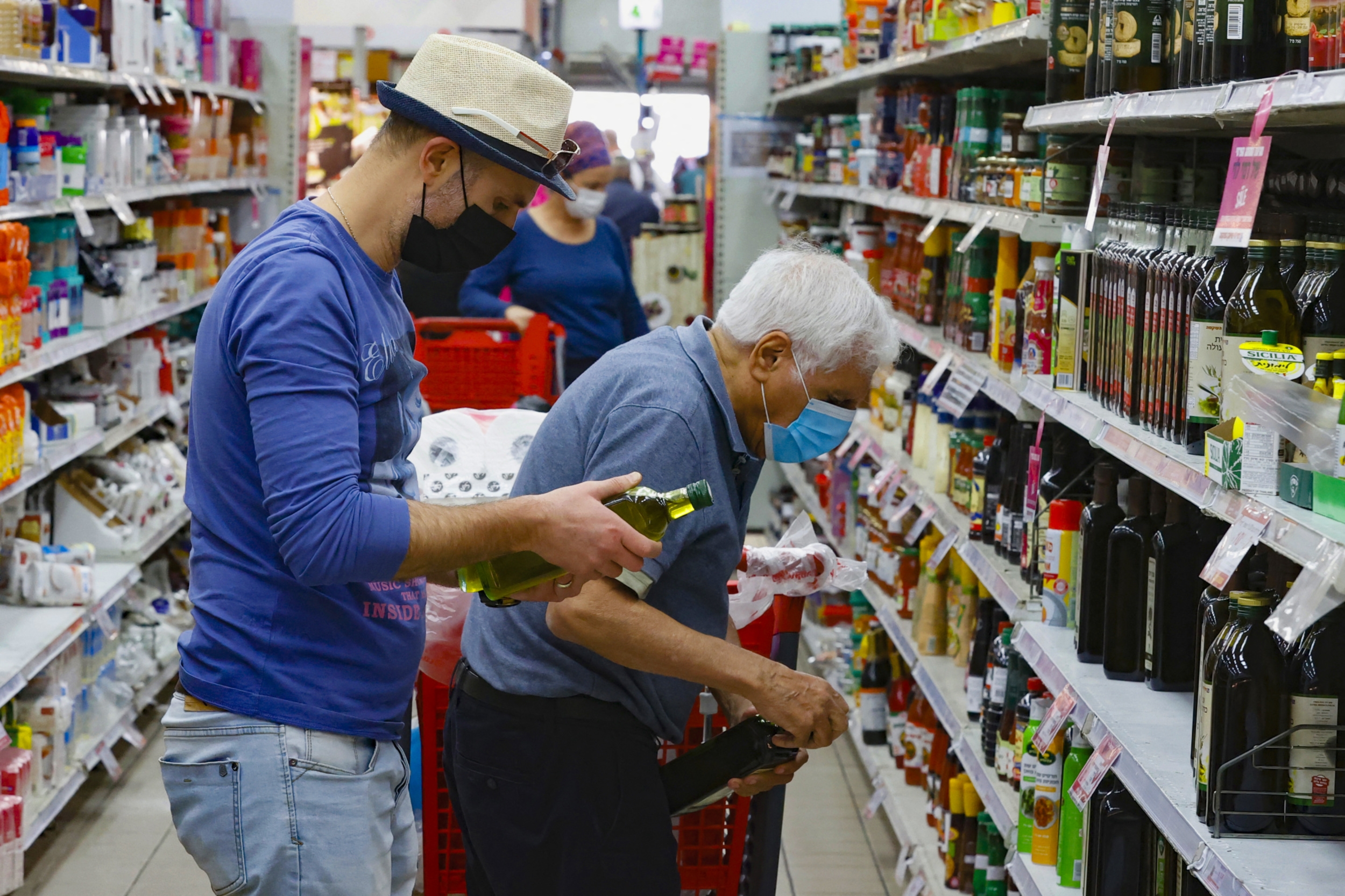Arabic press review: Tunisia 'secretly' exports 1,000 tons of couscous to Israel annually

Tunisian couscous finds its way to Israeli market
A Tunisian investigative website has revealed secret exports of Tunisian products to Israel, despite the absence of direct or open relations between Tel Aviv and Tunis.
The report, by Alqatiba, has indicated that Randa Food Industries exports about 1,000 tons per year of its famed couscous to Israel, where it is very popular.
The website revealed that shipments are exported from the port of Rades in Tunisia, via the French port of Marseille, to the Israeli port of Ashdod.
Alqatiba added that the owner of the Randa company, Mohammed Hashisha, established a company in France, named Sodic, as an export broker to Israel, in order to conceal the final destination of the containers shipped by Randa Food Industries from Tunisia.
The website quoted the director of Randa, Adnan Hamida, confirming the presence of several Tunisian products on the Israeli market, "as any Tunisian product can be commercialised there through Palestinian or Arab companies".
Critics have denounced Randa's operation as a form of normalisation with Israel, given the fact that Tunisia has no official relations with Israel.
At the end of December, the Tunisian foreign ministry confirmed it would not normalise relations with Israel, noting its position was "solid and firm", after the UAE and other Arab countries announced they would establish relations with Tel Aviv.
Expatriates lose their residency permits in Kuwait
More than 200,000 people have lost their right to reside in Kuwait due to coronavirus restrictions imposed in the Gulf country, the Kuwaiti newspaper Al-Qabas has reported.
Expatriates stuck outside the country due to border closures have now lost their residency permits and the right to return to Kuwait.
A Kuwaiti security source said the numbers covered people affected from 10 March 2020 to 15 March 2021, and added that the Egyptian community formed the majority of those who had lost their residency rights. Indian expats were next hardest-hit, followed by Sri Lankan residents.
The affected expats hail from 20 different countries.
The source added that those who are currently outside the country and still have valid residency permits should renew their credentials before the fixed expiry date. They will then be able to enter Kuwaiti territory when authorities decide to re-open airports.
Meanwhile, the Public Authority for Manpower in Kuwait has revealed that 8,000 residents have permanently left the country, after a grace period granted to those in violation of residency law expired in January.
Israel involved in crime gangs in Palestinian towns
Israeli authorities have been involved with organised crime gangs within the Palestinian community in Israel, an investigation broadcast by Al Jazeera reported on Sunday.
An Al Jazeera TV programme quoted the head of the Islamic Movement in Israel, Sheikh Raed Salah, "accusing the Israeli intelligence services of complicity in organised crime against the Arab community".
The programme also quoted a former official from Shin Bet, Israel's internal security agency, who said on condition of anonymity that "the [Israeli] army is one of the most important sources of weapons for the gangs inside Israel".
Al Jazeera referred to leaked documents that revealed that Suleiman Agbaria, one of the leaders of the Islamic Movement and a former mayor of Umm al-Fahm, had been under surveillance by Israeli intelligence officers before an assassination attempt targeted him.
On 7 January 2021, unidentified gunmen shot and seriously wounded Agbaria.
About 1.9 million Palestinians live in Israel, comprising a fifth of its population, and are descended from about 154,000 Palestinian families who did not leave their lands during the establishment of the Israeli state in 1948.
For years, Palestinians inside Israel have accused the police of "deliberately failing to combat crime within the Arab community". In the past several months, Palestinians have been demonstrating against escalating violence and widespread crime.
Jordan food prices spike ahead of Ramadan
The prices of many food commodities in Jordan have increased sharply in recent days, a few weeks before the Muslim fasting month of Ramadan, amid accusations that prominent traders are manipulating prices and establishing monopolies on certain products.
The Jordanian government has, meanwhile, been trying to control the increase in prices to contain popular discontent, reported the London-based Al-Araby Al-Jadeed newspaper.
The prices of basic food commodities, including vegetable oils, sugar, rice, chicken and some types of vegetables and fruits, have increased by between 40 and 70 percent.
The government attributed the increases to the rise in commodity prices globally, while retailers and restaurant owners have accused businesses of reducing supplies and withholding goods in order to raise prices during Ramadan, which will start by mid-April and usually sees an increase in consumer demand.
The unusual price hikes of some agricultural products have led the Ministry of Agriculture to rescind the suspension of some agricultural imports, such as oranges and bananas, which have seen price rises exceeding 200 percent.
"Food merchants and some workers in the field of food processing accumulate and monopolise large quantities of basic supplies, which has contributed to the inflation in prices of many commodities recently," the head of the Jordanian Union of Restaurants and Confectionery Proprietors, Omar al-Awad, was quoted as saying.
According to official data, Jordan imports a large proportion of its food, while maintaining self-sufficiency in commodities such as eggs and some varieties of vegetables.
*Arabic press review is a digest of reports that are not independently verified as accurate by Middle East Eye
Middle East Eye delivers independent and unrivalled coverage and analysis of the Middle East, North Africa and beyond. To learn more about republishing this content and the associated fees, please fill out this form. More about MEE can be found here.






